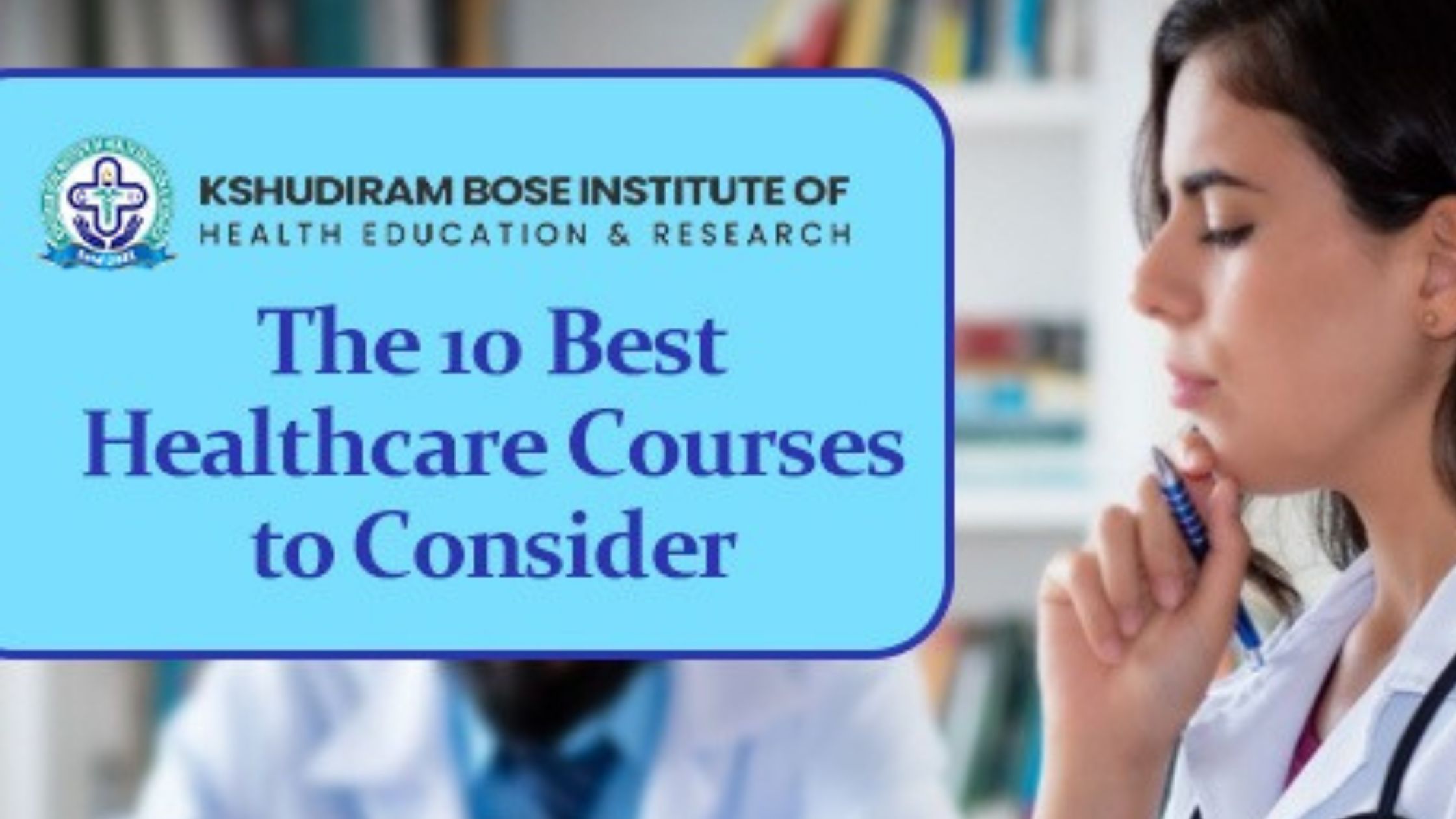
Introduction:
In the ever-evolving field of healthcare, staying updated with the latest skills and knowledge is essential for a successful career. Whether you're just starting your journey in healthcare or looking to advance your existing career, choosing the right courses is crucial. In this blog, we'll guide you through the ten best healthcare courses that can help you achieve your professional goals.
1. Medical School (MD/DO):
Medical School, also known as Medical Doctor (MD) or Doctor of Osteopathic Medicine (DO) School, is a rigorous and specialized educational institution that trains individuals to become medical doctors or osteopathic physicians. These schools typically offer a comprehensive curriculum that combines theoretical knowledge with practical clinical experience.
2. B.Sc. in Medical Laboratory Technology
A Bachelor in Medical Laboratory Technology is an undergraduate degree program that focuses on training students in the essential skills and knowledge required to work in a clinical laboratory setting. This program typically spans a duration of four years and combines theoretical coursework with hands-on practical training.
3. B.Sc. in Critical Care Technology
A Bachelor of Science (B.Sc.) in Critical Care Technology is an undergraduate degree program designed to prepare students for a career in healthcare, specifically in the field of critical care medicine. This program focuses on equipping students with the knowledge and skills necessary to work in intensive care units (ICUs) and other critical care settings where patients with life-threatening conditions receive specialized medical attention.
4. B.Sc. in Operation Theatre Technology
A Bachelor of Science (B.Sc.) in Operation Theatre Technology is a specialized undergraduate degree program designed to prepare students for careers in the field of healthcare, particularly in the Operation Theatre or surgical suite. This program focuses on training individuals to become skilled professionals who assist surgeons and other medical personnel during surgical procedures, ensuring a safe and sterile environment for patients.
5. Bachelor of Physiotherapy
A Bachelor of Physiotherapy, often abbreviated as BPT, is an undergraduate degree program that focuses on the study and practice of physiotherapy. Physiotherapy is a healthcare profession that aims to promote, restore, and maintain physical function and mobility in individuals who may be affected by injuries, illnesses, or other physical conditions.
6. Bachelor in Hospital Administration
A Bachelor's in Hospital Administration is an undergraduate degree program that focuses on equipping students with the knowledge and skills necessary to effectively manage healthcare facilities, particularly hospitals and other healthcare institutions. This program combines elements of healthcare management, business administration, and healthcare policy to prepare graduates for careers in healthcare administration.
7. Bachelor of Science in Nursing (BSN):
A Bachelor of Science in Nursing (BSN) is a four-year undergraduate degree program designed to prepare individuals for a career in nursing. This comprehensive and rigorous program provides students with a strong foundation in both the theoretical and practical aspects of nursing practice. BSN programs typically cover a wide range of subjects, including anatomy, physiology, pharmacology, nursing theory, healthcare ethics, and clinical skills.
8. Pharmacy School (PharmD):
A Pharmacy School, offering the Doctor of Pharmacy (PharmD) program, is an institution of higher education dedicated to training future pharmacists. PharmD is a professional degree program designed to equip students with the knowledge and skills needed to become licensed pharmacists and healthcare professionals responsible for dispensing medications, providing drug-related information, and ensuring patient safety.
9. Dental School (DDS/DMD):
A dental school, often affiliated with a university or academic institution, is a specialized institution dedicated to training future dentists who will provide oral health care services to individuals and communities. Dental schools typically offer programs leading to either a Doctor of Dental Surgery (DDS) or a Doctor of Dental Medicine (DMD) degree. These degrees are functionally equivalent and indicate that the recipient is qualified to practice dentistry.
10. Radiologic Technology Program:
A Radiologic Technology Program is a specialized educational curriculum designed to train individuals in the field of radiologic technology. This program typically spans several years, typically resulting in an associate's or bachelor's degree, and equips students with the knowledge and skills required to work as radiologic technologists or radiographers.
Conclusion:
Choosing from the right healthcare courses is a significant step toward a fulfilling and rewarding career in the healthcare industry. Each of these ten courses offers unique opportunities and challenges, allowing you to make a meaningful impact on patients' lives and the healthcare system as a whole. Consider your interests, skills, and career goals when selecting the best healthcare course for your future success.